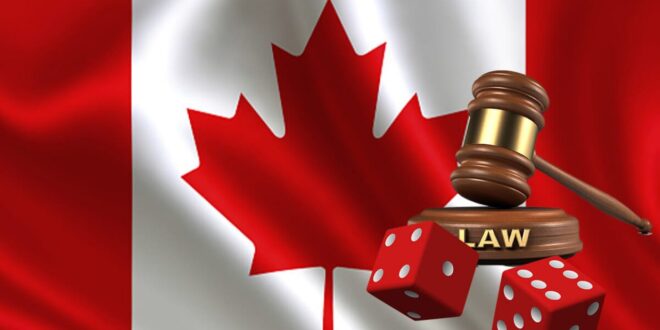Different countries have different laws in relation to gambling. These laws can affect a lot of things regarding gambling including factors like if gambling is legal in the country, which parts of the country is it legal in, which restrictions apply to gambling even when it is legal, the taxes collected on gambling money, etc. These laws can also keep on updating based on the new legislations or amendments brought by the governing government.
Canadian gambling laws and regulations have become more liberal in recent years, especially in the province of Ontario. Gambling is not explicitly allowed by the laws governing Canada but different provinces can have their separate laws and can allow gambling as long as it is registered under the authorities. As for online gambling in Canada, detailed information and casino games can be found on canadacasinohub.com. Besides this, the following are some important facts regarding the laws and regulations governing gambling in Canada:
Table of Contents
1. Different provinces have different laws
The Criminal code applicable across the country prohibits gambling. But even then the code allows the provinces to manage and regulate gaming in their own provinces. The only exception is the restrictions on conducting either horse racing or betting on the same for all provinces. Even when these laws exist, any private entity cannot just start a casino by themselves without facing any repercussions.
2. Private companies offering gambling services are registered under the specific province’s lottery corporation

Even though certain provinces legalize gambling, it does not mean that any private entity can set up gaming arenas or casinos according to their own wish. Provinces that allow gambling, have their own government bodies made specifically to deal with gaming. These are often referred to as Lottery Corporations. They are the particular organizations that have the responsibility to conduct and manage gambling in that particular province.
For example in the province of Ontario, there exists the Ontario Lottery Corporation that has the responsibility of maintaining the casinos in the province. These casinos are mostly run by private entities but legally they have to be registered under the Alcohol and Gaming Commission of Ontario also known as the AGCO. Besides this, the Ontario Lottery Corporation has to be the legal operator of all the casinos.
Currently, it is the provincial government monopolies that provide legal gambling in Canada. The private corporations registered under the authorities are merely suppliers of goods and services to the relevant Lottery Corporation.
3. Charitable organizations can organize such games
Other than private entities registered under the alcohol and gaming Commission of different provinces, charitable organizations present in the provinces can also organize casinos and gambling. This is done by a system of licensing. The provincial government can license the charitable organizations to allow them to hold and organize casino game events. This is different from the rights of the private entities who are merely ‘registered’ but not ‘licensed’ to hold such games and have to legally function under the Lottery corporation of the province at all times as their agents.
4. iGaming

iGaming is a new term that has emerged in the Canadian legal system in the last few years. It is one of the major developments brought in the gaming market of Canada and is a great way to secure the future of gaming in Canada in the years to come as it is all about online gambling which has become more and more prevalent with the advent of wider internet access.
iGaming was introduced to ensure that the gaming experience in Canada is as open as possible. That means it should be competitive but should also be secure. Even then, this is managed by the Canadian government due to the already established Canadian laws.
The establishment of iGaming has already been done in Ontario. This gives a great opportunity to online Casino providers to operate in Ontario. For this, the gaming website should first send an application to AGCO to register themselves and should get into a commercial relationship with the iGaming Ontario (or IGO) which is a dedicated subsidiary of iGaming in the province of Ontario.
Although the online gaming company might directly want to provide the gaming service to the consumers, this is not possible in the province. As per law, after obtaining the license the gaming companies should provide the gaming services to the IGO which then forwards it to the public. This legally makes IGO the entity that provides the online gaming service.
But even after such technicalities, the iGaming system is very beneficial for companies who want to operate their gambling games in Canada. It is equally beneficial for the citizens who want to play on such a platform. Even foreign operators can have their games be available in Canada legally using this system.

Conclusion
All in all, Canadian law makes Gambling games legal to an extent as long as the provincial government has significant control over them. This means that not every company can set up their Gambling games without getting registered under the appropriate authority. This can be a positive point for the people who want to gamble but are afraid of being scammed by private entities. As the private entities have to first register with the government it makes them more reliable for people playing such games.
Moreover, it leads to fulfilling the goal of the government as well. The objective of the government to come up with such laws and regulations was to make gaming accessible to people while also ensuring that the people are not accidentally scammed by entities that make fake promises. Such laws help the government in ensuring the same.
Besides this, the latest inclusion of laws related to online games in Canada has made it possible for the citizens to even gamble online while also staying safe and protected from scams. This solves a lot of issues that come with gambling online. Such a law also gives an opportunity to international online casino providers.
 World Magazine 2024
World Magazine 2024






